Meet the Nigerian-American Photographer Tackling Fashion’s Complicated Relationship With Race
Amarachi Nwosu understands the power of imagery. But while the 24-year-old photographer and director has seen her work featured in ads for Nike and Sony, her personal projects are about more than selling product. Using photo-essays to examine issues of race and identity, Nwosu’s latest exhibition, titled Sankofa, explores the history of slavery while attempting to reclaim one of its most potent symbols, Ghana’s Cape Coast Castle. “While the past cannot be changed, I believe visuals have the power to help spark and educate the minds that will shape the future,” she says via email from her home in Tokyo. “Western culture has used history as a means to empower themselves for centuries and has used imagery as a major vessel for that. As people of color we need to also use these tools to empower ourselves.”
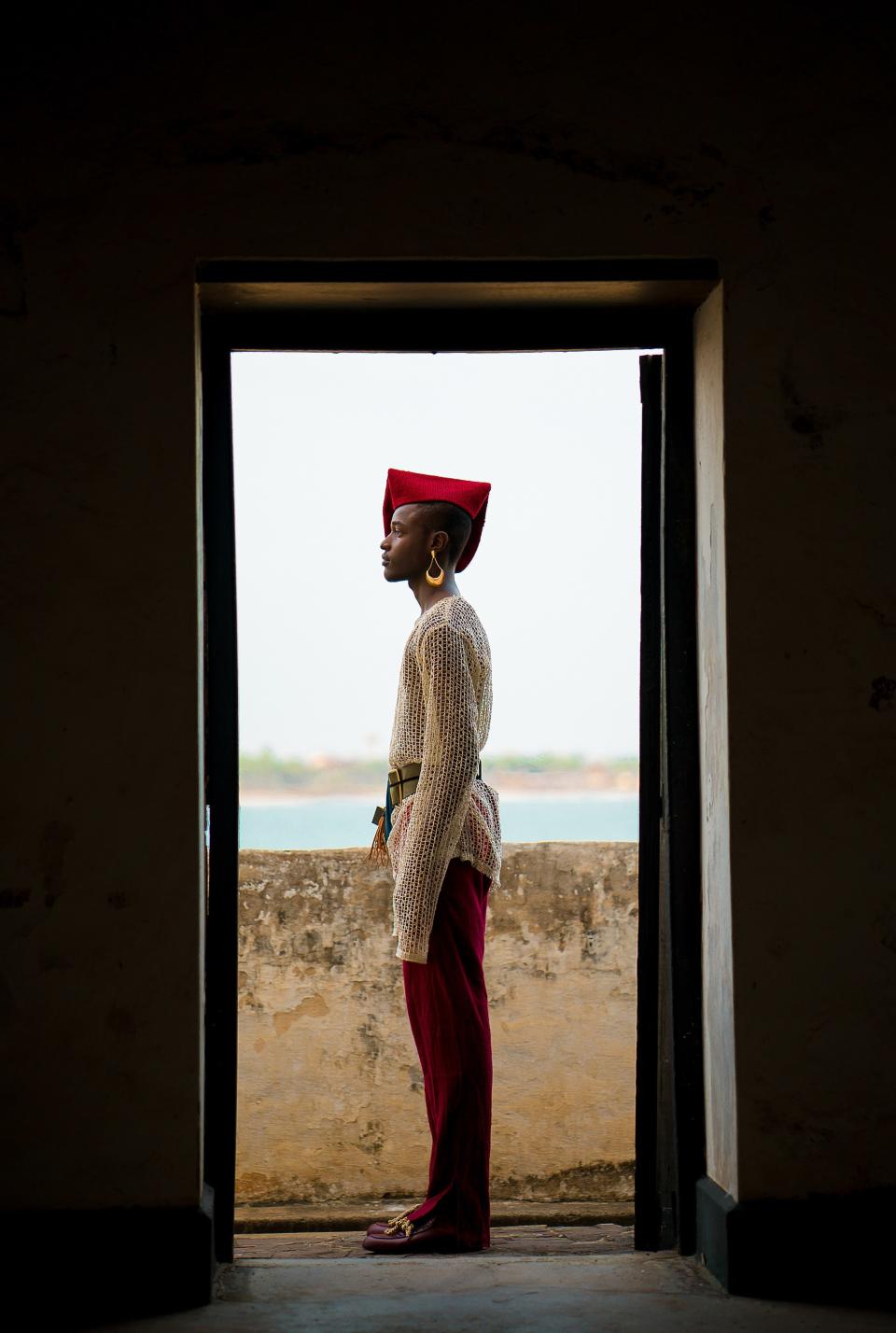
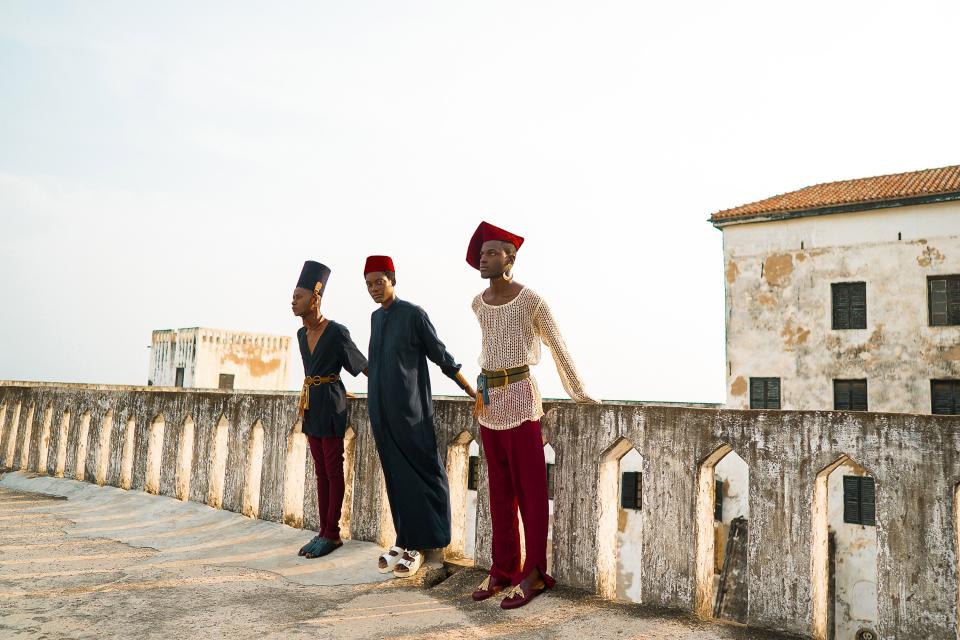
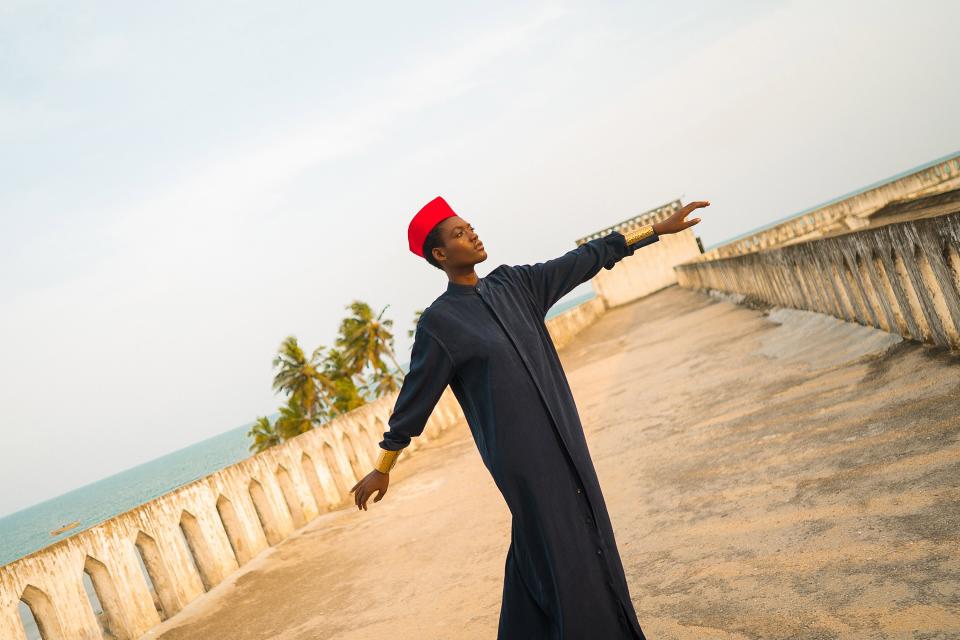
An elegant editorial featuring models Ekow Barnes, Terry Frimpong, and Briggitte Appiah might initially reflect the beauty of Afrocentric style, but dig deeper and the images serve as an expression of Nwosu’s personal history and political concerns. She began the series in 2018 when she was planning her annual trip to Nigeria, and the project grew out of her desire to understand the Ghanaian side of her family. “My grandmother is half-Ghanaian, and I’ve always felt disconnected,” she says. “I started by [asking her] questions, and I learned that my father was from Cape Coast, a space with so much rich history.” Compelled to research further, Nwosu hit the books. “I came to understand how culturally important [that region] is when it comes to natural resources and the history of the Atlantic slave trade.”
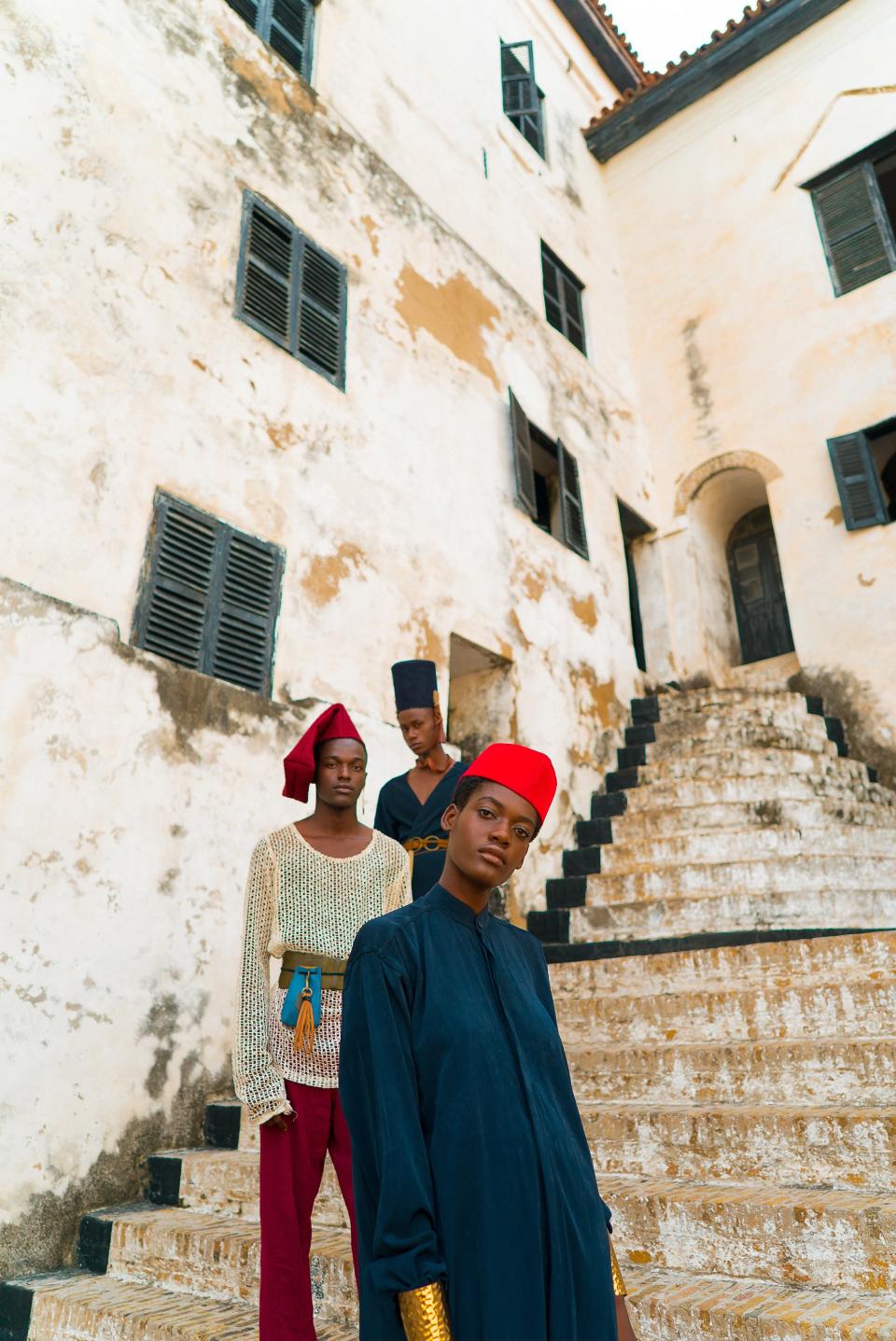
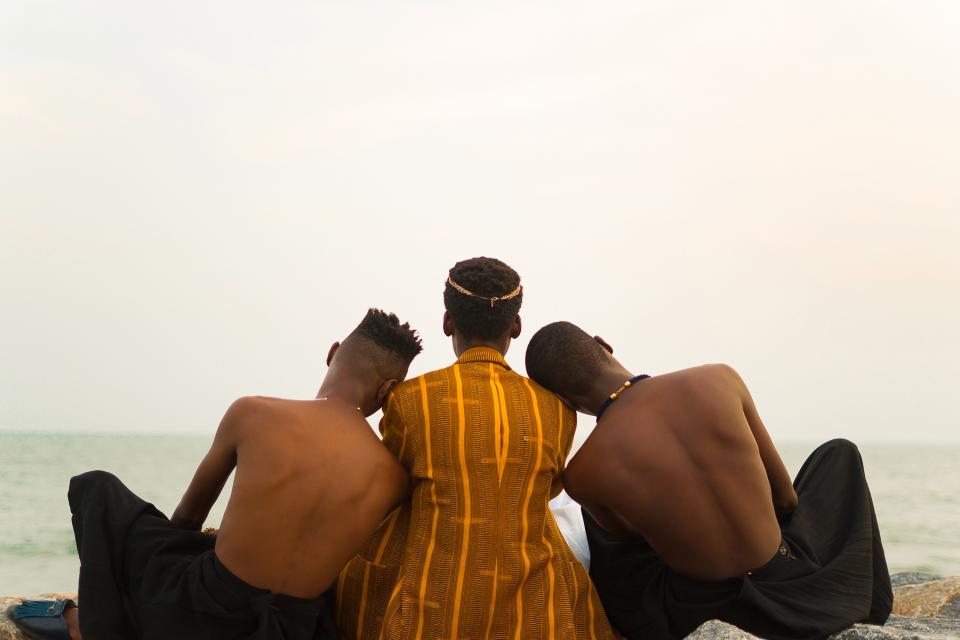
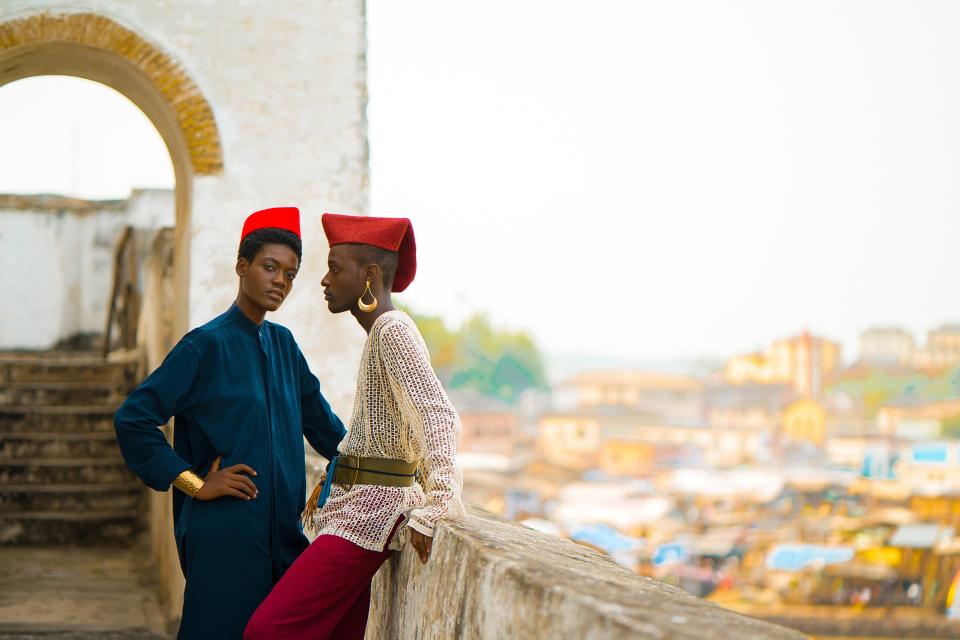
Further conversations with Barnes, a close friend with Ghanaian roots, led her to Cape Coast Castle, a fort on the southern coast of modern Ghana that served as the infamous last stop for slaves bound for the Americas and Caribbean. Nwosu felt that this lingering remnant of the era’s racial injustices was an ideal backdrop for the visuals she sought to create. “The main reason I created this story and chose the location was for the purpose of transforming narratives on slavery and its connection to Africa,” she says. “Rather than reproducing the narrative of black inferiority, which the castle often represents, I wanted to create a story that shows the subjects reclaiming the space and its meaning.”
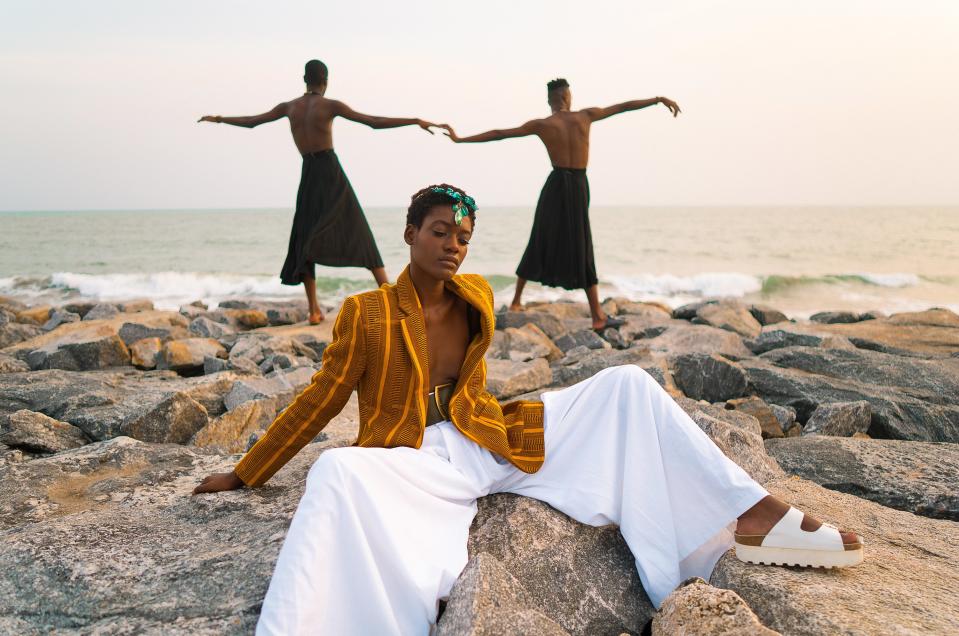
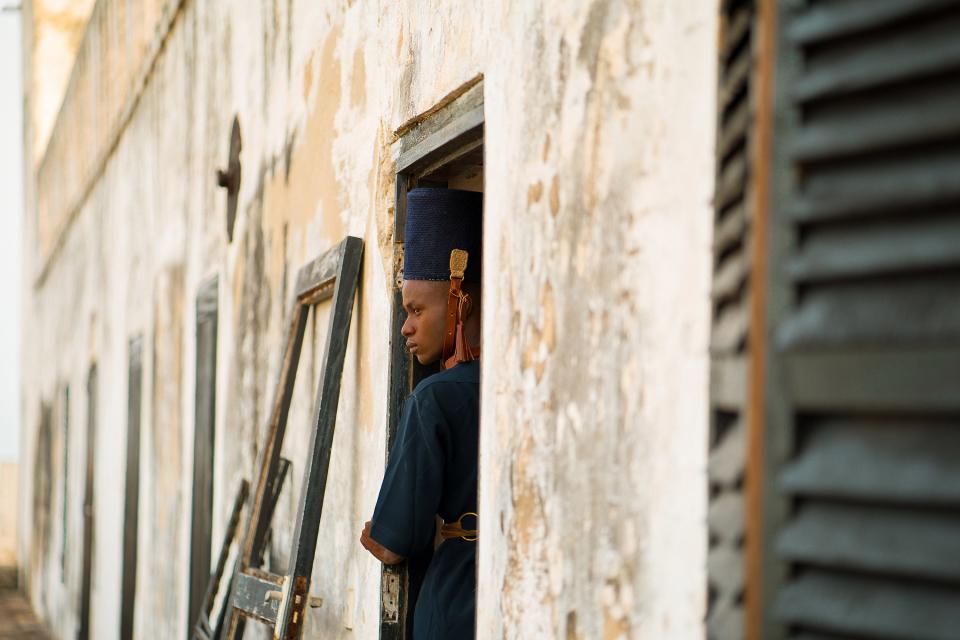
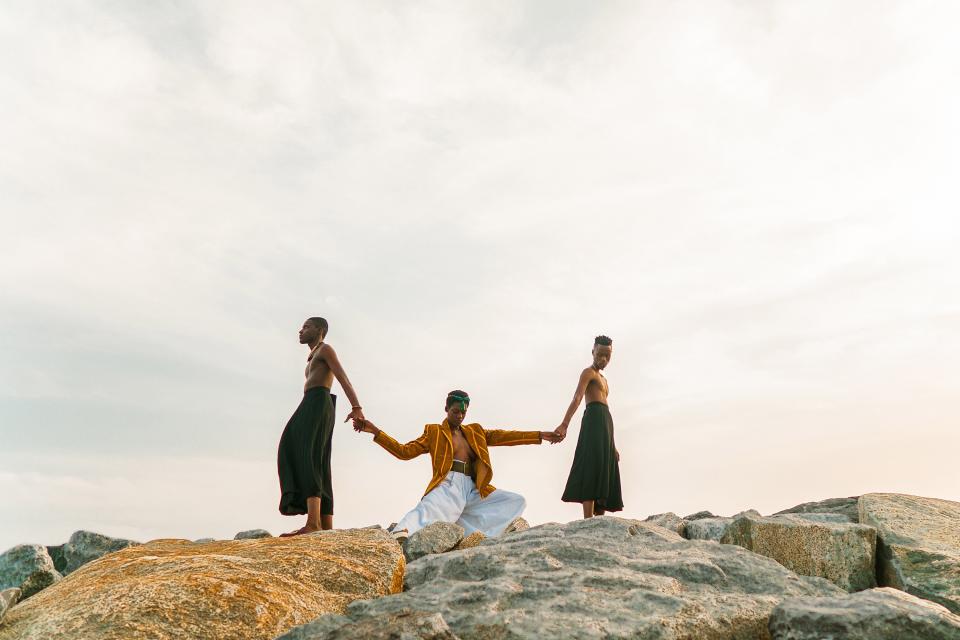
Shot over the course of a day, Nwosu and her crew—including stylist Neal Davids and makeup artist Hamid Vijay—had a limited amount of time to capture the images, but the impact of working at the site was immediately felt. “At first it was a lot to take in, and I began to feel so many emotions,” says Nwosu, who describes the experience as spiritual. “I had never felt so connected with my ancestors. I never had to balance both my emotions and my vision so much on a set, but it made the project that [much] more purposeful.”
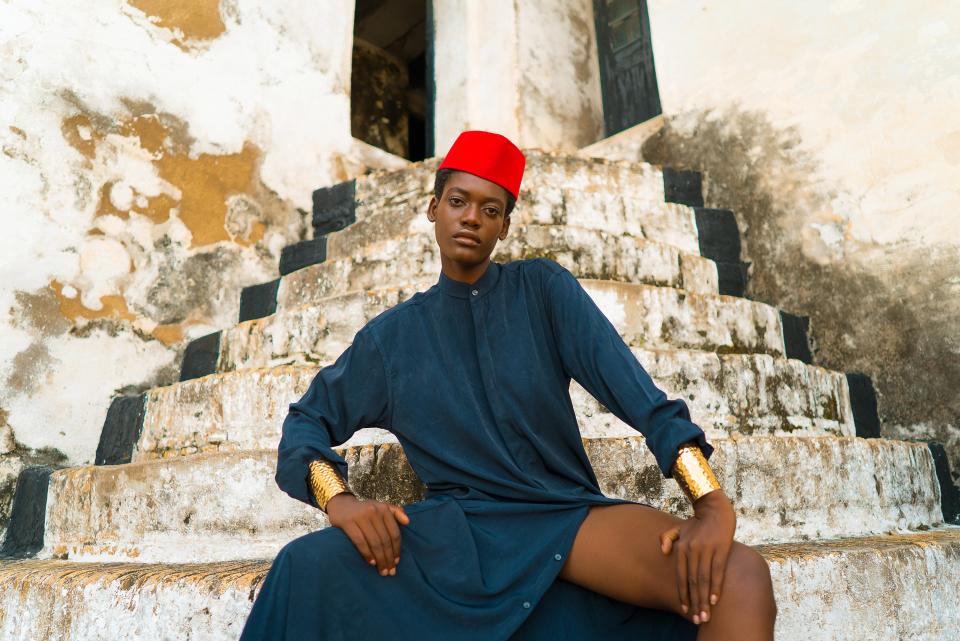
First shown at UltraSuperNew Gallery in Tokyo’s Harajuku district in February, Nwosu has been moved by the reactions to the project thus far. “I think the most unexpected response was talking to Japanese people and [having] them tell me that the images and exhibition inspired them to want to learn more about black history and see Africa for themselves,” she says. “I believe in the value of Africa to the world, but what is even stronger is when the world engages with Africa directly. There has been so much negative propaganda used to deter people from visiting and having interest in Africa, and to see my photos have the opposite effect was major to me.” With the exhibition now on display at New York’s WeWork gallery, Nwosu hopes the impact can eventually become global. “A lot of photography these days is made to live and die on the internet, and I want my photos to have more meaning than that,” she says. “I grew up not seeing many images that reflected myself, so I want to be a part of creating that change and sharing that with the world.”
Originally Appeared on Vogue

